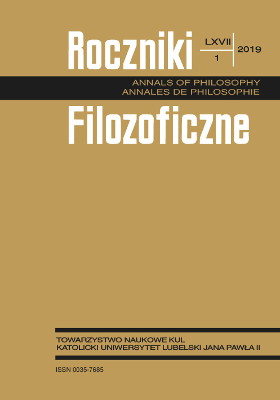Kierkegaard wobec problemu ukrycia Boga
Kierkegaard and the Divine Hiddenness Problem
Author(s): Marek DobrzenieckiSubject(s): Philosophy, Special Branches of Philosophy, Philosophy of Religion
Published by: Towarzystwo Naukowe KUL & Katolicki Uniwersytet Lubelski Jana Pawła II
Keywords: Kierkegaard; Schellenberg; divine hiddenness argument; analytical philosophy of religion; fideism; rational nonbelief; transcendence of God; images of God
Summary/Abstract: More than a few contemporary analytical philosophers of religion have tried to answer the atheistic argument from hiddenness presented in 1993 by John L. Schellenberg. In the paper the author focuses on the objections raised by Søren Kierkegaard with respect to the concept of faith that is displayed in Schellenberg’s philosophy of religion. The insight from the author living 150 years before the current debate allows us to notice the premises of the hiddenness argument that are commonly overlooked. One can, i.e. suppose that Kierkegaard would cast doubt on Schellenberg’s claim that the best evidence allowing the development of a mutual relationship between God and the human being is an experience of an accepting presence of God in human consciousness. Kierkegaard argues in his works that only the hiddenness of God guarantees a free and a selfless relationship between men and God. He shows this in a colourful language of metaphors in which he compares faith to conjugal love; a human life to an exam and a relationship between God and the human being to a relationship between a king and a female servant. This way of reasoning reveals the importance of the role of the images of God in the reflections of philosophers tackling the hiddenness argument.
Journal: Roczniki Filozoficzne
- Issue Year: 67/2019
- Issue No: 1
- Page Range: 65-82
- Page Count: 18
- Language: Polish

